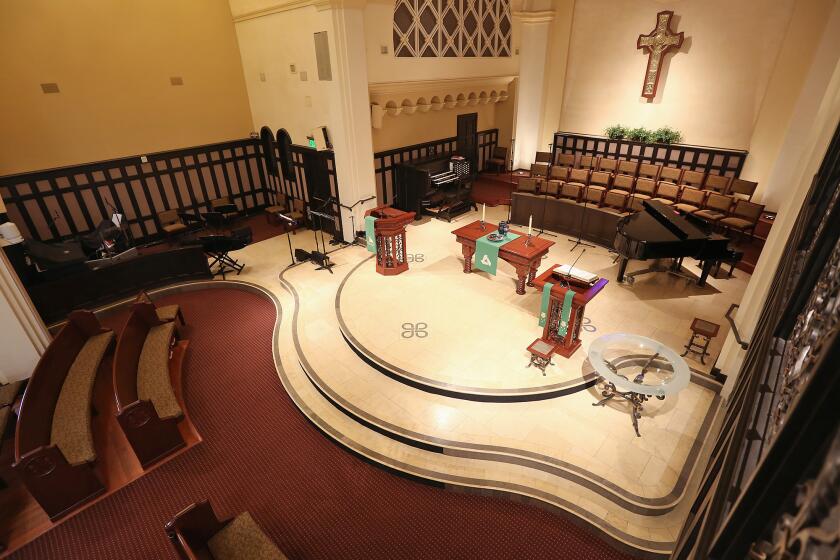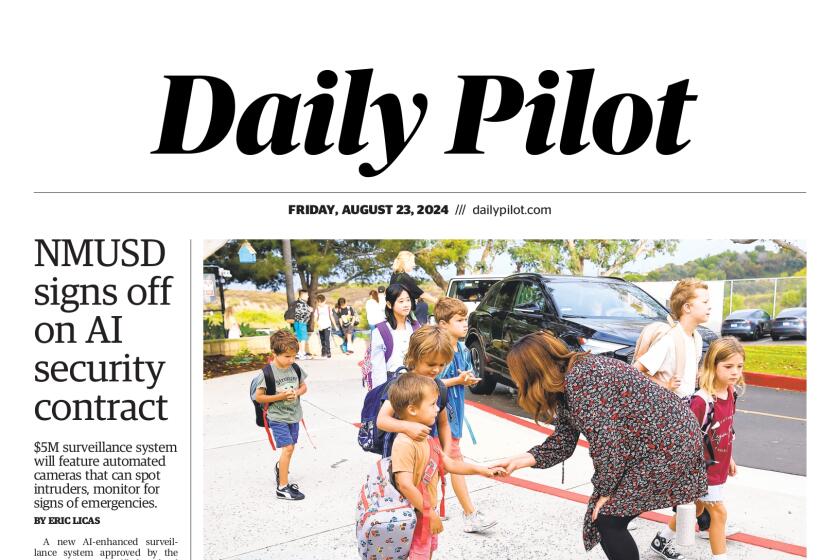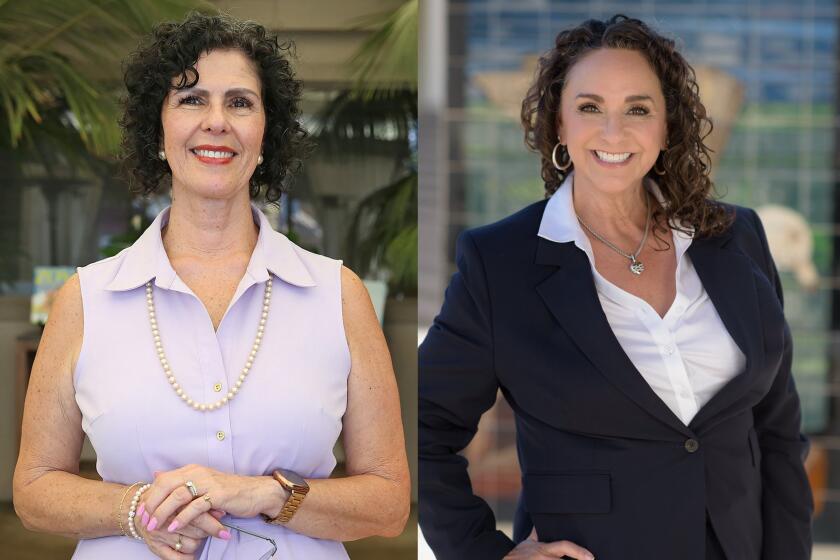A colorful candidate for governor
Paul Clinton
Local electronic components maker Nick Jesson is prepared to spend $9
million, if that’s what it takes, to get himself elected governor.
Jesson, who owns three manufacturing businesses in Huntington Beach,
has entered a crowded field of Republican challengers hoping to face off
against Democratic Gov. Gray Davis.
He’ll knock heads with six other Republicans seeking their party’s
nomination at the convention in early February.
“I’ll spend what it will take to win,” the 51-year-old Jesson said.
Big spending isn’t foreign to the race for the state’s highest office.
In the 1998 primary, Davis spent $8.4 million to defeat Jane Harman, who
raised $16.2 million, and Al Checchi, who raised $40.8 million.
And don’t expect the checkbooks to stay closed among Jesson’s leading,
formidable opponents -- former Los Angeles Mayor Richard Riordan,
Secretary of State Bill Jones and businessman Bill Simon.
Jesson has tacked up signs along Beach Boulevard and other major
thoroughfares urging voters to “Stop Agenda 21” and vote for him.
The pledge to spend a portion of his own personal fortune does give
Jesson more credibility than the handful of other Republican candidates,
including Newport Beach resident Edie Bukewihge, who are expected to
raise little or no money, political analyst Mark Petracca said.
However, Jesson will have to reach a large audience, Petracca said.
“You can’t do it at the local level,” said Petracca, the chair of UC
Irvine’s political science department. “Bringing $9 million to the table
is nice, but putting up signs in Newport Beach and Irvine isn’t going to
win you the governor.”
So far, Jesson is billing himself as “the true conservative” in the
race -- pro-life, supportive of Second Amendment gun rights and opposed
to government taxation.
Jesson wants to abolish state-collected income tax and the California
Franchise Tax Board.
Jesson has criticized Davis’ management of the budget, saying the
governor is ignoring $424 million in reserve funds when he talks about
the looming shortfall.
In his 2002-03 fiscal year budget, Davis said the state would face a
$12 billion deficit due to a slumping economy, the energy crisis and
other factors.
“The governor has been very forward and honest about our budget,” said
Roger Salazar, a Davis spokesman. “We’re going to have to make some tough
cuts and do some borrowing to make it through this year.”
Jesson’s cryptic opposition to Agenda 21 on his campaign signs is a
reference to the Earth Summit, a United Nations-sponsored conference in
1992. Out of that conference came Agenda 21, an 800-page treaty to combat
global warming.
Jesson said the treaty is a conspiracy to strip private citizens of
their weapons.
“What they’re going to try to do is force the people from the rural
areas so they can control people,” Jesson said. “They can disarm us. We
have foreigners on our land with no business here.”
That viewpoint, and others, have relegated Jesson to the status of
fringe candidate, Petracca said.
The Republican Party has also taken that position, shutting Jesson out
of several publicly televised debates and refusing him time at the
party’s Feb. 9 convention.
“In order to have a manageable, reasonable debate, we have limited it
to candidates who are polling at 5% or better,” said Rob Stutzman, the
spokesman for the California Republican Party. “What we are trying to do
is showcase the top three Republican candidates. The nominee is likely to
be one of those three gentleman.”
Jesson’s colorful viewpoints on issues mirror his colorful past. Born
in Wichita, Kan., he said he ran away from an abusive home at 15. He took
a job at a truck stop and lived in the bushes.
When he could, he bought a 1957 Ford for $60 from a junkyard.
From 1969 to 1971, Jesson served in the Army in the Vietnam War. When
he returned, he spent time in San Diego living out of a van, briefly
returning to Kansas when his mother died of cancer.
“Until you walk a mile in a person’s shoes, you have no right to
criticize them,” Jesson said. “I know what it’s like not to have a job,
to wonder where the next meal is coming from and if you can feed your
children.”
Jesson founded his businesses in Huntington Beach in 1987 and bought a
home in Fountain Valley in 1990. He has a Vietnamese wife and two
children.
* Paul Clinton covers the environment and John Wayne Airport for the
Independent’s sister paper, the Daily Pilot. He may be reached at
(949)764-4330 or by e-mail at o7 paul.clinton@latimes.comf7 .
All the latest on Orange County from Orange County.
Get our free TimesOC newsletter.
You may occasionally receive promotional content from the Daily Pilot.



